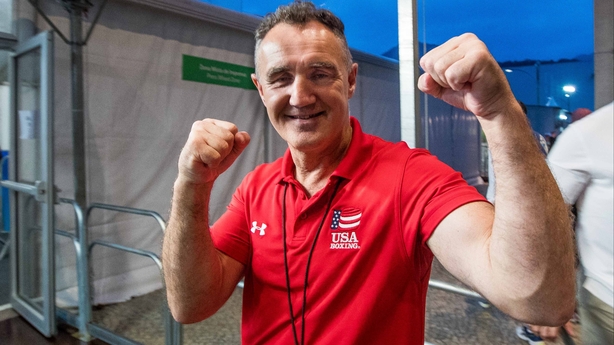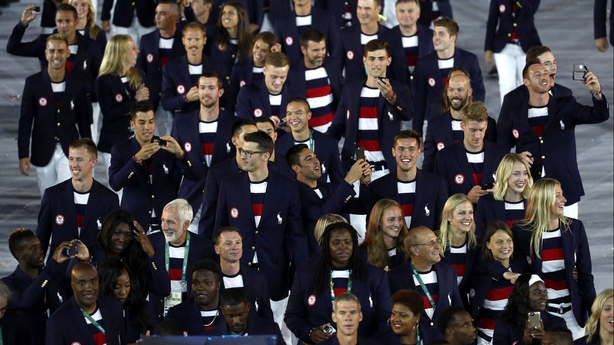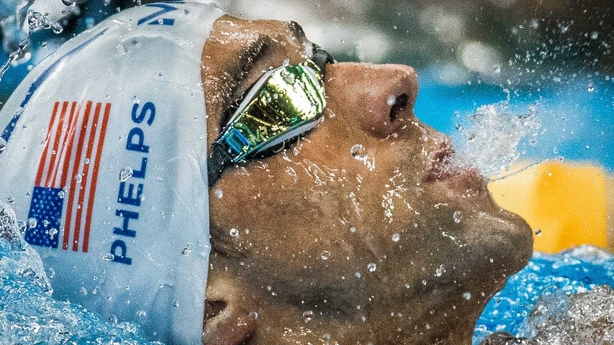It's four years since the US Olympic Committee turned to an Irishman to lead their phenomenally powerful team of athletes.
Finbarr Kirwan, then the director of high performance at the Irish Sports Council, took the leap. He moved Stateside to perform the same role with a country well fed on glory and with an insatiable appetite - and expectation - for more.
It was, he tells RTÉ Sport, "a change in scale and size; not only the number of athletes but also the size of the country", a tenfold increase in the number of competitors he had to oversee and an unbelievably competitive environment that craves and demands success.
As Kirwan points out, you could be good enough to win an Olympic medal but not good enough to make the US team.
This weekend he appears at the HPX Conference at the National Sports Campus in Dublin on October 6-7, which is being run by Sport Ireland Institute and Sport Ireland Coaching to showcase some of the lessons identified by top athletes, coaches, science professionals and performance leaders during the Rio 2016 cycle and also to explore the role of talent development in shaping the future of high performance sport.
Reflecting on his early days working with Team USA, he says: "What I needed to be able to do was to identify the key influencers in each of the sports of I was working with and develop relationships with as early as possible.
"Rather than try to engage with 200, 300 athletes, it was more important for me to determine who were the key people within each of the sports, develop the relationships with them and in turn those relationships would help form connections with the coaches and the athletes in due course.
"I had six sports going into Rio. Those sports won a total of 73 medals."

A "Darwinian" culture means the better the athlete, the more attention they get.
In America, monster medal hauls are expected . Despite that - or rather because of it - Kirwan says egos are kept in check. No one can get above their station because there's always somebody behind them pulling up trees to take their place.
"The time my team spends with athletes has to be directed at those athletes who can actually get the job done and win a medal.
"It is very much Darwinian. It's a hyper competitive environment. In swimming (to make the Olympic team) you've got to be in the top two in the country in your event.
"You could be good enough to win an Olympic medal but not make the team.
"It's a real challenge to make the team. In turn it's a challenge for us to make sure we identify the right athletes and provide the right support and services to them.
"Because it's so competitive you have to suppress the ego to a certain extent.
"You could be top of the pile in one year and then there's another kid who has come out of college and he beats you and he's top of the pile.
"The point is - except for a rare few like Michael Phelps and Allyson Felix and people like that - you can never really get comfortable in the States. There's always somebody nipping at your heels, that wants your spot.
"There's less egos than I expected. And I think there's less egos because people are challenging constantly and they're always at risk of not making the team. There's too much talent behind them."
While Kirwan's focus has predominately been on track and field and the pool, another Irishman has been thriving in this 'survival of the fittest' climate.
Billy Walsh's painful split with Sport Ireland was to the benefit of the USA, who were desperate to sort out their underachieving boxers and swooped for the man who'd led his own country to so much success.
After taking three medals form Brazil, Walsh was named the Boxing Association (AIBA) world coach of the year. His impact seemed spectacular and immediate, but Kirwan said there was initially resistance to his methods from some of the fighters.

"Billy has the courage of his own convictions. He has a very strong self belief and that's infectious. But I'll tell you something, he did have some battles when he started there.
"There were some boxers who came from a more traditional mindset and Billy needed to, I suppose, make it clear who was boss. He was able to garner that respect because he wasn't afraid to lay down the law from day one.
"I think it does suit Billy. He's a competitor at heart. He's a very charismatic man. Obviously he's brilliant technically, all you have to do is stand ringside and watch him and how he communicates to the boxers. More than anything else the US boxers believe he can make them better. He's willing to go to extremes to make sure they get what they need.
"I know for sure there's a major commitment from the US Olympic Committee to support Billy and the work he's doing. He's on a very good path over there and he's doing incredible work. The respect he has from the boxers has not been seen within that programme for decades.
"The boxers didn't necessarily respect the coaches in the past but there is a fundamental respect now. He's making a massive difference."

Phelps, Kirwan admits, was simply in a league of his own.
He took five golds and a silver in the pool at Rio, bumping his career haul up to an incredible 28 Olympic podium finishes.
Kirwan saw first hand the astonishing ability he possessed, and puts his achievements down to a perfect storm of talent, drive and desire.
"I worked very closely with him and his coach leading into Rio. My job, with athletes of that caliber, is to make sure he's getting what he needs.
"Michael had three key ingredients: a freakish talent, he was an incredible competitor and he had an enormous work ethic. When you combine those three things it's a pretty compelling proposition.
"He'll admit himself that he didn't train as hard as he should have for London. But his commitment leading into Rio was second to none. That had a profound effect on the rest of the team as well.
"They saw him working that hard and it was it was a very motivator I think for the rest of the team."
For Kirwan, the wheel keeps on turning. Preparations for Tokyo 2020 are well under way but it goes beyond that. Paris four years later, and then the LA Games in 2028 are in the psyche.
The next generation is already being honed.
"In swimming we're funding a junior national team programme. Our expectation is that the 2028 team will likely come from a big, big majority of those kids.
"The culture that's in USA swimming right now is basically the national junior team is modelled on the Olympic team. You're expected to perform and prepare in the same way that the Olympic team performs and prepares.
"That work is under way. That trajectory is already being assessed and being supported."
The HPX Conference 2017 runs from October 6-7 at the Sport Ireland National Sports Campus in Abbotstown. You can find out more about the Ireland Institute conference dealing with lessons learned from high performance here.


